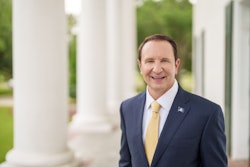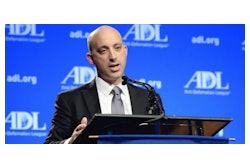 Harvard University
Harvard University
Harvard University has filed a lawsuit challenging the Trump administration's freeze of more than $2.2 billion in federal research grants, marking a significant escalation in tensions between higher education institutions and the federal government over campus speech and academic freedom.
The funding freeze came in direct response to Harvard's refusal to comply with a series of government demands outlined in an April 11 letter, which called for substantial changes to university policies regarding campus activism, admissions practices, and student organizations. The administration's demands included requirements for Harvard to audit viewpoints on diversity across campus and discontinue recognition of certain student clubs.
"The Government has not — and cannot — identify any rational connection between antisemitism concerns and the medical, scientific, technological, and other research it has frozen that aims to save American lives," Harvard stated in its federal court filing in Boston. The university further argued that the government failed to acknowledge "the significant consequences that the indefinite freeze of billions of dollars in federal research funding will have on Harvard's research programs."
Harvard President Dr. Alan Garber has framed the university's stance as defending fundamental principles of higher education.
"Today, we stand for the values that have made American higher education a beacon for the world," Garber wrote to the Harvard community, adding that universities can "fulfill their essential role in society without improper government intrusion."
The administration's demands included implementing stricter disciplinary measures against protesters, screening international students for those deemed "hostile to American values," and comprehensive leadership and admissions policy reforms. Additionally, the letter called for Harvard to evaluate its faculty and student body to ensure diverse viewpoints across all departments.
The White House responded forcefully to Harvard's legal challenge.
"The gravy train of federal assistance to institutions like Harvard, which enrich their grossly overpaid bureaucrats with tax dollars from struggling American families is coming to an end," White House spokesman Harrison Fields stated. "Taxpayer funds are a privilege, and Harvard fails to meet the basic conditions required to access that privilege."
This case represents the first major confrontation in what appears to be a broader effort by the administration to influence policies at universities that Republicans have criticized as centers of liberalism and, following protests against Israel's war in Gaza, antisemitism. The administration has found leverage in research funding, which has historically supported significant scientific advancements.
The lawsuit follows an earlier legal challenge filed by the American Association of University Professors seeking to halt the government's investigation of Harvard's funding. Harvard's complaint specifically argues that the funding freeze is "arbitrary and capricious," violates First Amendment rights, and contradicts provisions of Title VI of the Civil Rights Act.
The American Council on Education (ACE), representing over 1,600 colleges and universities, has expressed support for Harvard's legal action. "It has been clear for weeks that the administration's actions violated due process and the rule of law," said Dr. Ted Mitchell, the president of ACE.
The outcome of this legal battle could have far-reaching implications for the relationship between the federal government and higher education institutions nationwide, potentially setting precedents for academic independence and the conditions under which federal funding can be withheld.


















